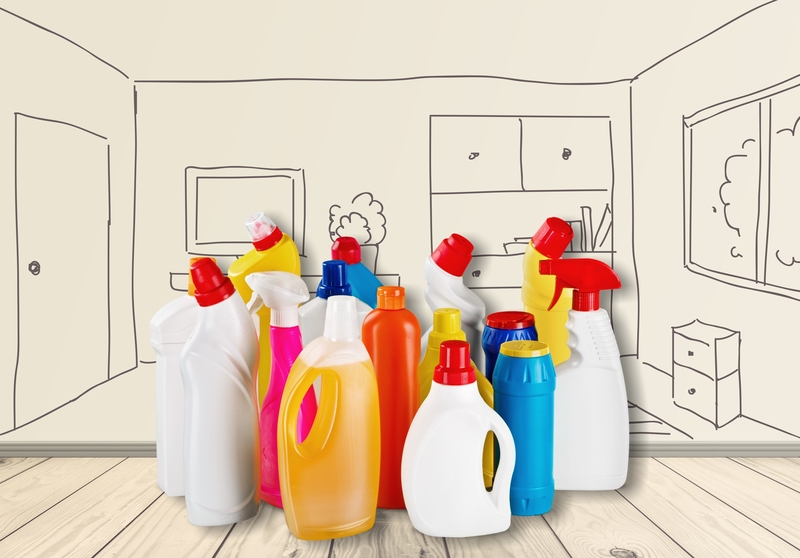Every year, children are injured or die by ingesting household chemicals. Most of these chemicals are ingredients or ordinary cleaning products that you may use routinely without thinking about the potential dangers. If you’re a parent or a grandparent, or you have children visiting your home, you should be aware of common types of chemicals to keep safely away from children’s reach.
Bleach-Based Cleaners
You’re familiar with bleach as a laundry-whitening aid, but bleach is also an ingredient in many surface cleaners that are advertised as antibacterial. Check the label for words like bleach, chlorine, or hypochlorite. If swallowed, these chemicals can burn the lining of the mouth, esophagus, and stomach. Spray cleaners are especially dangerous because there are no child-safety caps and they are easy for children to operate. A child can injure their eyes by spraying a bleach-based cleaner into them. They can also suffer chemical burns on the skin of their face and hands.
Ammonia
Ammonia, often listed as ammonia hydroxide, is a common component of toilet bowl cleaners, window cleaners, and all-purpose cleaners. Ammonia can be just as harmful as strong acids. Just like bleach, it can cause internal injuries when swallowed by a child, even in small amounts. The fumes of ammonia are also dangerous if inhaled because they irritate the lungs. These injuries are all too common because of the use of spray bottles. Children with asthma are especially vulnerable. Accidentally mixed with bleach, ammonia can cause a highly poisonous gas.
Lye
Lye, also known as sodium hydroxide, is found chiefly in oven cleaners and drain cleaners. If the cleaner is powerful enough to cut through cooked-on grease and hard water deposits, imagine what it can do to the human throat and esophagus. Swallowing lye is a life-threatening emergency. A lesser-known use of lye is in button batteries, which are sometimes used in toys, remote controls, and hearing aids. If a child swallows a button battery, the lye it contains can burn a hole through their stomach lining.
These common products can be found in almost every household, but they should be locked away and out of children’s reach. Young children love to climb and explore, and encountering these harmful chemicals can lead to a tragic end. While it might be a mild inconvenience for you, keeping these chemical cleaners away from kids will ensure their safety and health.
Read this next: Health Issues That Have a Bigger Impact Than You Think



